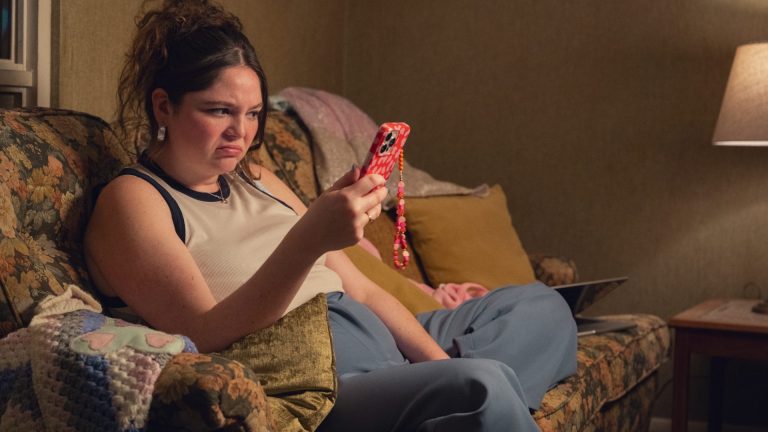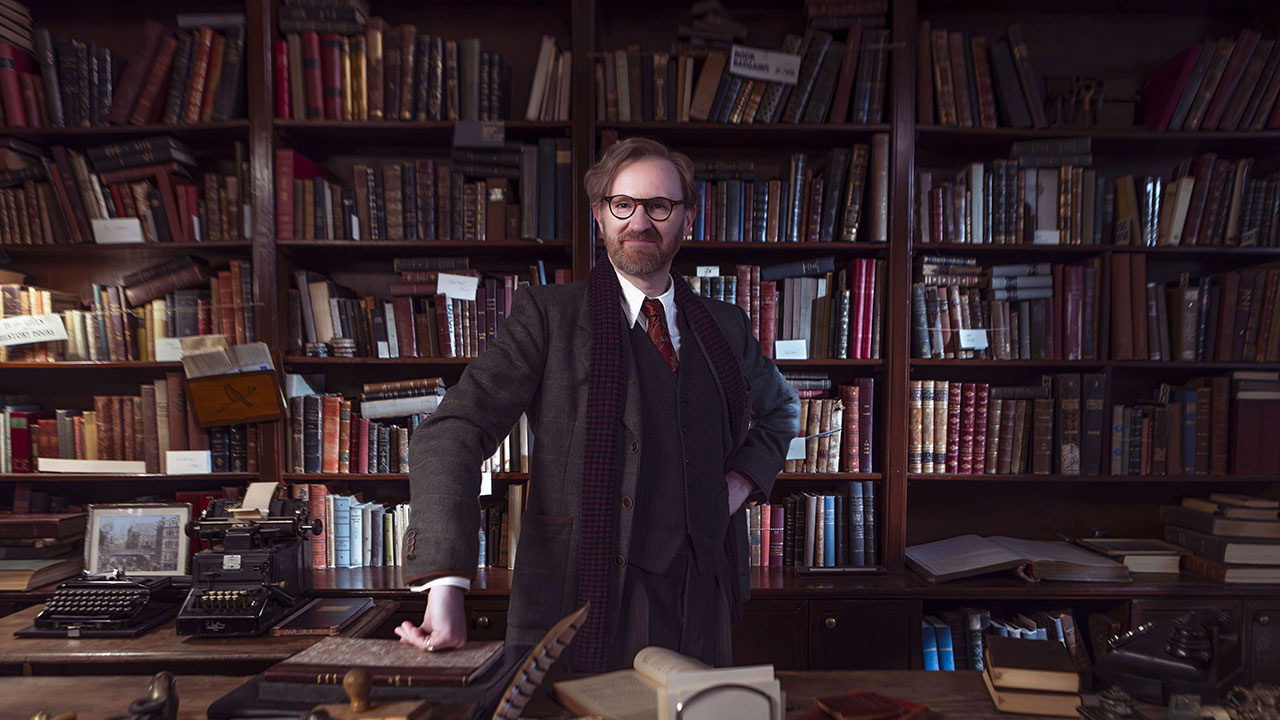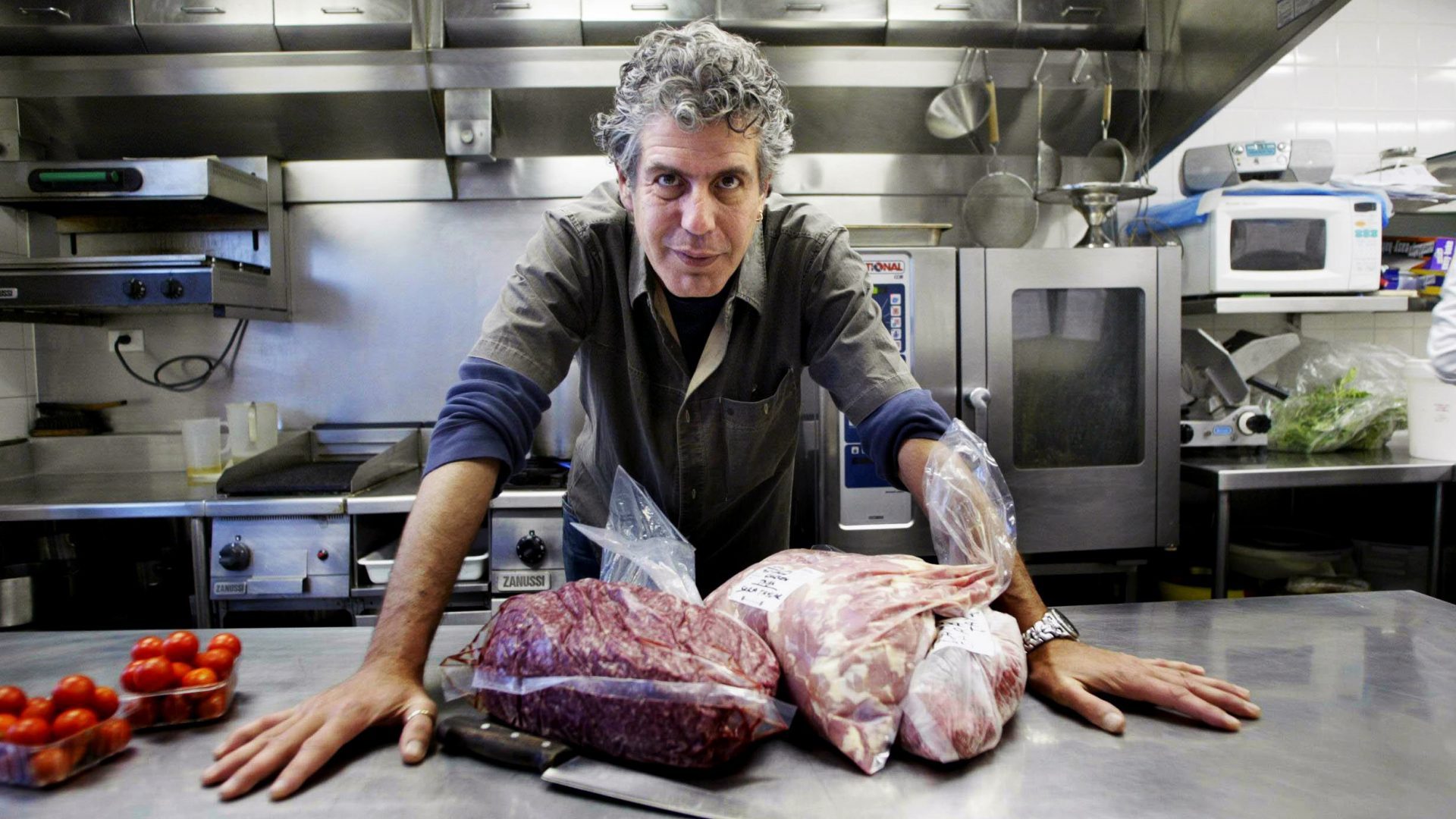The minute we meet there’s a bizarre moment. Mark Gatiss, the League of Gentleman star, Sherlock Holmes’s smarter brother and writer of Doctor Who, whips out his phone and takes a photograph of me and my accreditation badge. “John Bleasdale!” he says. “It’s good to see you again Mr Bleasdale.” It turns out that I taught Mark Gatiss English at school.
OK, not me – another Mr Bleasdale, who has every right to be proud. Mark Gatiss has written several episodes of Sherlock, appeared in Game of Thrones and Mission: Impossible. On stage he was the lead in a revival of The Madness of King George and played John Gielgud in The Motive and the Cue. He wrote a documentary series on the history of horror for the BBC and is a novelist whose The Vesuvius Club I’d highly recommend to anyone.
We’re meeting on a sweltering day in Rimini, Italy, at a TV festival where he is presenting Bookish, the new crime drama he created, and in which he stars alongside Polly Walker. Gatiss plays Gabriel Book, the owner of a second-hand bookshop who has a second line in helping the police solve crimes.
“I just always loved books, and I loved the whole thing, especially old books, and haunted a lot of bookshops,” says Gatiss. “If I’m visiting a nice town, I always gravitate to them. You go through the door and the books are all piled up, and it’s a bit ramshackle, and there’s an eccentric owner and a dog, but it does something. It’s like a cloister.”
Polly Walker admits that she’s the other end of the spectrum when it comes to books. “I can’t say I read a lot of books, I’m afraid. I wish I could, but I don’t,” she says. “I’m an actress, not a writer like Mark, so I do read a lot of scripts, though, obviously.”
Walker’s career has taken in both Michael Newell’s Enchanter April as well as Bridgerton. Here she plays Trottie, Book’s wife, though the marriage is a so-called lavender marriage – a convenient arrangement that provides cover for Book’s homosexuality. As the series is set in the immediate aftermath of the second world war, Book’s sexuality could easily land him in jail. When I remark that these kinds of marriages are a thing of the past, Gatiss says: “I think you’d be surprised. Especially in Hollywood.”
The London of Bookish is one of bomb damage and rationing – but what particularly drew Gatiss to the immediate postwar moment? “I feel very at home with the language of that period. It comes very naturally to write for those sorts of parts,” he says. “People are so obsessed with the war itself, but the immediate postwar period is very under-examined.”
Suggested Reading


Too Much is one of the best streaming series you will watch all year
To get a flavour of the acting style of the time, they watched one of Gatiss’s favourite films, Green for Danger, starring Alistair Sim and Trevor Howard. “I was blown away,” Walker says. “I thought, ‘Oh God, this is going to be dry and I’m not going to be able to relate to it, and how is it going to be useful to me?’ And yet, actually, it was an inspiration: the dialogue, the pace of the film, and also the acting is impeccable and so naturalistic, so much better than now.”
At its core though, Bookish is a whodunnit, a show about crime-solving that will obviously attract fans of Sherlock. “Well, as Sherlock Holmes said, there’s nothing new under the sun,” Gatiss says. “So what you have to do is essentially give it a new coat of paint. There are certain rules which we all agree to abide by, in terms of murder mystery, usually a closed circle of suspects, because it’s a puzzle.” One director had told Gatiss that the first character to appear in two different scenes is always the killer. “I started looking out for that and bloody hell, it was true.” From that point on Gatiss made a concerted effort to avoid putting his killer in that position.
“All those things, I love them all. So it’s sort of natural to me to try to create these things, but you’re always trying to find a way of changing a bit. And so to me, it’s the backstory and this unusual marriage and the fact that Book is gay in a very dangerous time, which is the new element.”
What would be an example of a perfectly made murder mystery? “Tonally, my absolute favourite is the Peter Ustinov Evil Under the Sun: that is the definition of a good Sunday afternoon film. Amazing, stellar cast, beautiful location. They’re all having a great time, but they’re not just indulging themselves because the murder is fantastic and clever and fiendish. And, you know, that’s what we’re all striving for. It’s a high bar, but that sort of tone is what we’re after. And then hopefully we can all go to a very sunny location one day for a Christmas special.”
Perhaps you could link it to Peter Weir’s Witness, I suggest. “Yes, because Harrison Ford’s character is called John Book in Witness,” Gatiss says. “Yes, that’s exactly where I took it from.”
There’s got to be an episode where his nephew leaves for America, I suggest. Gatiss raises an eyebrow. I hope I’ve just given him a homework assignment.
But I’d have a lot to live up to. It turns out the other John Bleasdale didn’t just teach Mark Gatiss, he was an inspiration – Dead Poets Society, “Captain, my captain!” style. Gatiss sends a text with my picture attached to Mr Bleasdale, with whom he is still in regular contact. “He calls me ‘My success’,” Gatiss says.
John Bleasdale is a writer, film journalist and novelist based in Italy




